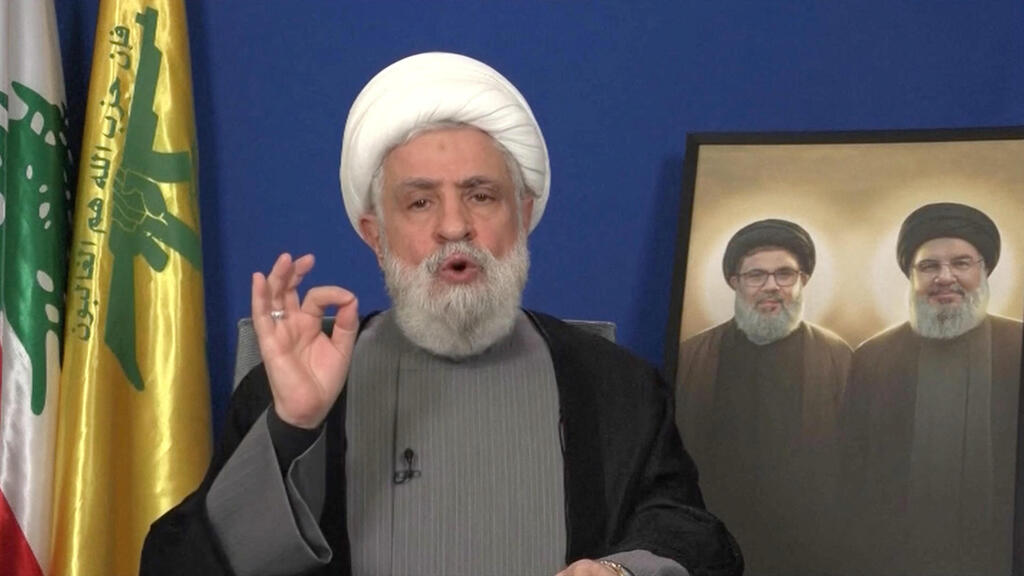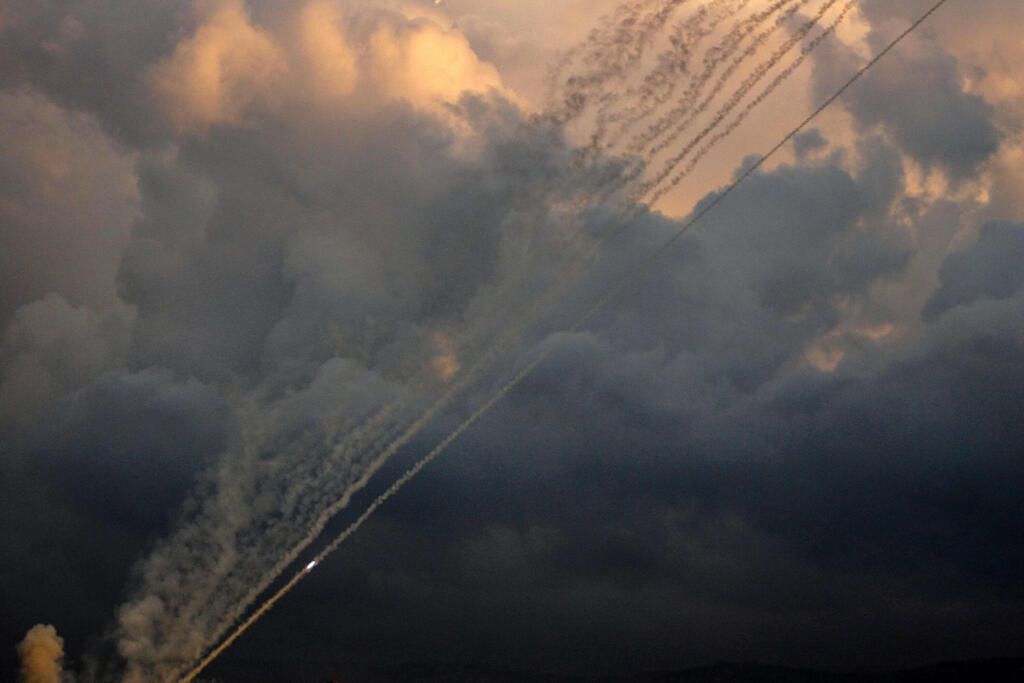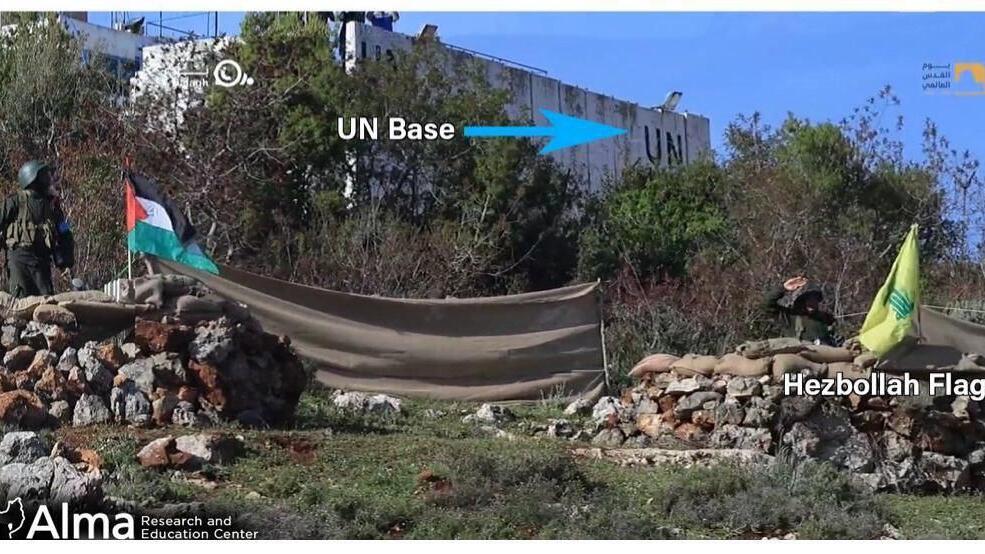Getting your Trinity Audio player ready...
The rebuilding of villages in South Lebanon close to the border with Israel, will begin soon after the cease-fire being negotiated, will come into effect should the talks succeed. The Shiite residents of those villages, currently displaced elsewhere in Lebanon, will hurry back to rehabilitate their homes with Iranian and other international funding.
Based on past experience, it is clear that Hezbollah will try to use the building efforts in the South and in other parts of Lebanon, to once again construct their infrastructure that would enable them to resume threatening Israel with missiles, rockets and drones and will use construction in the south to once again dig their underground fortifications, tunnels and weapons stores, as well as lookout posts to gather intelligence.
IDF strikes Dahieh early on Saturday
Iran will no doubt assist in those efforts. Hezbollah is its most vital strategic arm that is meant to split the IDF's forces if an attack on the nuclear sites is launched. Iran will also attempt to rebuild Hezbollah's medium range projectile force after they were destroyed in Israeli attacks in Beirut and the northern areas of Lebanon.
The Iranians will not only attempt to transfer missiles and drones and the means to produce precision rockets to Hezbollah in Lebanon but would also increase efforts to store those weapon systems for their proxy in Syria and Iraq, as far away from the Lebanon-Israel border as possible, which would challenge the Israeli air force much more than if they were to attack such systems in Lebanon.
Iran supplied Hezbollah with long-range missiles including Scud D with a range of up to 700 kilometers (435 miles) able to carry warheads of hundreds of kilograms of explosives, which are able to reach anywhere in Israel including its most southern port of Eilat.
Hezbollah used less advanced and heavy missiles to target the Ben-Gurion International Airport but little success and it is possible that some of the long-range missiles were destroyed by the IDF during the war.
There would also be an effort to build Hamas and Palestinian Islamic Jihad militias in Lebanon after the war. Hezbollah lost some 2,500 of its force including commanders and 8,000 logistical support troops were also put out of commission, many of whom were wounded in the synchronized attack on the terror-group's communications devices in September and will therefore reinforcements.
Even now, Hamas and PIJ fighters along with other Islamist Palestinian groups have been fighting alongside Hezbollah and took part in short-range rocket launches at Israeli communities near the border. PIJ forces were set to join Radwan fighters in the planned invasion of the Galilee but the war in Gaza, which decimated the Islamist faction's capabilities which could now force them to move the center of their operations to Lebanon and perhaps Syria.
Israel will have to prove to the commission that will be established to monitor compliance with the terms of the cease-fire, that there are violations especially if there is rebuilding of terror infrastructure above and below ground. The commission which will be made up of Western and Arab nations will be headed by an American General and will demand hard proof before it demands of the government in Beirut that action be taken.
To identify violation in time and remove the threat that they pose, the IDF will have to invest vast and sustained intelligence efforts, after the failures that led to Hezbollah's vast infrastructure construction leading up to the war.
After the 2006 Second Lebanon War the UN Security Council passed resolution 1701, which is the basis of the cease-fire deal under negotiation. It was a good agreement on paper and had it been enforced, would have prevented the need for the war currently fought between the IDF and Hezbollah.
But the resolution was not enforced, beyond the establishment of a peacekeeping force deployed to South Lebanon. That force, now numbering some 15,000 troops from different countries including from Europe, bolstered by a German naval force, simply did not do its job.
Hezbollah did not immediately return to the south after that war. It waited for the rebuilding of villages destroyed in the fighting, to begin, and then infiltrated them, appearing first as innocent unarmed civilians. Radwan forces came later and was entrenched and empowered only two or three years after that war ended.
UNIFIL was oblivious to the slow building of a military power and when they did report concerning findings, no action was taken. Absurdly Israel also neglected its intelligence efforts and there were years when there was no aerial surveillance at all, so as not to prompt the government in Beirut, calling for action from the UN, including possible sanctions on Israel.
This failure on Israel's part in 2008 to 2014, required increased intelligence efforts later, and explained why the IDF failed to see the vast tunnel construction Hezbollah built and only detected six tunnels threatening Israel. Israel accepted Hezbollah's violation of the UN resolution to keep the quiet along the border.
There is now a consensus in Israel, the U.S. and in Western countries including the UK, France and Germany that the IDF must be able to enforce any cease-fire conditions, if and when Hezbollah violates them.
Get the Ynetnews app on your smartphone: Google Play: https://bit.ly/4eJ37pE | Apple App Store: https://bit.ly/3ZL7iNv
It is clear to all that Hezbollah, egged on by Iran would attempt to rebuild its capabilities using subterfuge, in South Lebanon and elsewhere around the country and will attempt to smuggle weapons in by land sea and air, to restore its arsenal.
Israel will have to make determined decisions or else residents of the north would never enjoy a sense of security that they so deserve. A deployment of more troops, military positions, border walls and lookouts would not suffice if the military intelligence cannot uncover cease-fire violations that would likely be minor at first but would surely grow in time. Without a strong foundation that would ensure the intelligence forces are able to observe and monitor the enemy, the IDF would not be able to take the necessary actions to secure the border and the population residing near it.









